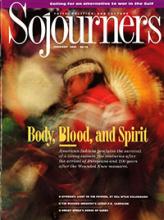Hours before the invasion of Kuwait, the Associated Press reported that the U.S. Commerce Department authorized a US. manufacturer last spring to ship specialized industrial furnaces to Iraq, even though officials at Commerce had been warned that the furnaces could be used in the production of nuclear warheads and missile nose cones.
The U.S. Customs Service officials intercepted the shipment on a dock in Philadelphia, as they earlier last year stopped another shipment to Iraq that consisted of nuclear warhead triggers. How many similar shipments got through? That we may discover the hard way.
American assistance to Iraq's nuclear development hasn't only consisted of providing the technical components. The United States has also provided Saddam Hussein with something that might in the long run be more important: the political rationale for Iraq's nuclear weapons program.
Iraq is a signatory in good standing of the Treaty on the Nonproliferation of Nuclear Weapons (known as the Nonproliferation Treaty, the NPT), which was intended to prevent the spread of atomic weapons -- for countries which didn't yet have them, but also for the superpowers, who agreed in the treaty to pursue negotiations "in good faith" toward eliminating their nuclear arsenals.
As we know, it hasn't worked. The Soviet Union and the United States, despite the removal of the Cold War rationale for their buildup of nuclear warheads, continue to build new and better weapons -- the numbers now stand somewhere around 50,000.
Many non-nuclear countries see the superpowers continuing full tilt with their nuclear stockpiling, and say to themselves, If they can do it, why can't we?
Read the Full Article
